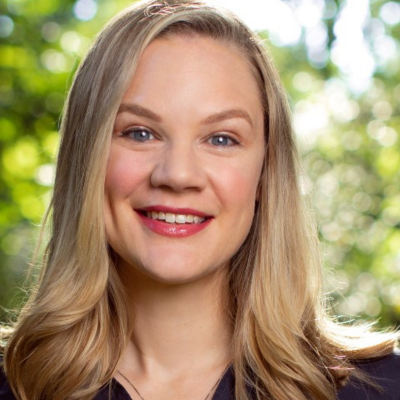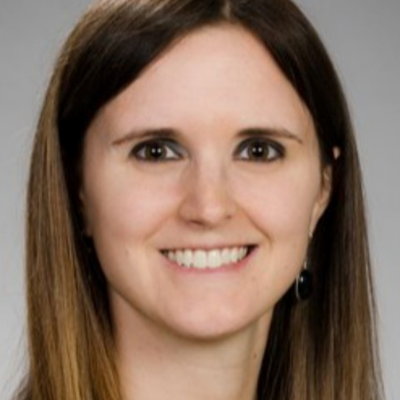
Recorded Mini Workshop #4 - Cultivating Joy with CBT in Medical Populations
-
Register
- Non-member - $35
- Member - $25
- Student - $15
2023 MW4
Mini Workshop 4 - Cultivating Joy with CBT in Medical Populations
Presenter(s)

Megan M. Hosey, Ph.D.
Assistant Professor
Johns Hopkins University School of Public Health
Baltimore, Maryland

Abbey J. Hughes, ABPP, Ph.D.
Assistant Professor
Johns Hopkins University School of Medicine
Baltimore, Maryland

Yevgeny Botanov, Ph.D.
Assistant Professor
Penn State University - York
York, Maryland
Abstract:
Being diagnosed and living with a medical condition inherently requires acquisition of new skills to manage physiologic, emotional, and neurocognitive symptoms. Interactions with medical environments can over-emphasize pathology and loss without properly attending to values, strengths, and goals held by medical patients (Warren et al, 2017). Furthermore, emphasis on medical procedures and pharmacologic intervention often comes at the expense of exploring opportunities for building self-efficacy and non-pharmacological approaches for symptom management. This workshop will focus on the application of three cognitive behavioral therapy (CBT) approaches, adapted to three medical populations: 1) people with critical illness in an inpatient setting (Hosey, et al 2021); 2) people with Stiff Person Syndrome in an outpatient setting; and 3) people with multiple sclerosis and their caregivers in an outpatient setting (Hughes et al., 2022). Presenters will emphasize use of CBT, ACT, and DBT approaches to foster partnership with patients and promote skill-building in both the management of disease and doing so in a way that brings symptom reduction, renewed joy, and greater meaning in life. The workshop will include a mix of didactic training, clinical vignettes, and videos useful for learners of all levels who are treating adults (and their family members or caregivers) with medical conditions. Presenters will also cover strategies for supervisors engaging doctoral and postdoctoral trainees in this setting. This workshop is consistent with the conference theme: “Cultivating Joy with Cognitive Behavioral Therapy.”
Outline:
- Overview – Context of Need for Joy in Medical Environments
- Hosey:
- Intensive Care Unit – evidence and applications
- Case Examples
- Engaging Psychology Trainees in the ICU Setting
- Hughes:
- Stiff Person Syndrome - evidence and application
- Case examples
- Botanov
- Multiple Sclerosis – evidence and application
- Case examples
- Botanov and Hughes: Engaging Psychology Trainees in the Medical Telehealth Setting
- Summary – Key Highlights for Cultivating Joy with CBT Approaches in the Setting of Illness and Hospitalization
Learning Objectives:
At the end of the session, the learner will be able to:
- Describe common emotional and physiologic challenges experienced by people living with medical conditions and their caregivers.
- Apply basic behavioral activation and cognitive behavioral therapy (CBT) skills with patients and families in critical care settings.
- Describe methods to adapt acceptance and commitment therapy (ACT) to patients with stiff person syndrome.
- Describe methods to adapt dialectical behavior therapy skills training for individuals with multiple sclerosis and their caregivers.
- Plan for the effective supervision of trainees who are learning to apply CBT approaches in patients with complex medical presentations.
Recommended Readings:
- Warren, A. M., Agtarap, S., & deRoon-Cassini, T. (2017). Psychological resilience in medical rehabilitation. Practical psychology in medical rehabilitation, 57-66.,
- Hughes, A. J., Botanov, Y., & Beier, M. (2022). Dialectical behavior therapy skills training for individuals with multiple sclerosis and their support partners: A pilot randomized controlled trial. Multiple Sclerosis and Related Disorders, 59, 103481.,
- Hosey, M. M., Wegener, S. T., Hinkle, C., & Needham, D. M. (2021). A cognitive behavioral therapy-informed self-management program for acute respiratory failure survivors: a feasibility study. Journal of clinical medicine, 10(4), 872.,
****************************************
All attendees will receive a certificate of completion when the course requirements are satisfied. Certificate of completion is included in the cost of the webinar
The Association for Behavioral and Cognitive Therapies incurs significant administrative cost related to your registration before a webinar. Therefore, there are no refunds for live webinars. If you unable to attend a webinar, we will provide you with the recorded version after the live presentation (which is still eligible for CE credit). If you wish to cancel or request to transfer your webinar registration to another webinar please email your request to membership@abct.org.
ABCT is approved by the American Psychological Association to sponsor continuing education for psychologists. ABCT maintains responsibility for this program and its content
The Association for Behavioral and Cognitive Therapies has been approved by NBCC as an Approved Continuing Education Provider, ACEP No. 5797. Programs that do not qualify for NBCC credit are clearly identified. The Association for Behavioral and Cognitive Therapies is solely responsible for all aspects of the programs
The Association for Behavioral and Cognitive Therapies is recognized by the California Board of Behavioral Sciences for Marriage and Family Therapist (MFT) to offer continuing education as Provider #4600
Association for Behavioral and Cognitive Therapies (ABCT), is recognized by the New York State Education Department’s State Board for Psychology as an approved provider of continuing education for licensed psychologists #PSY-0124

